The legend of Sergei Belov
MOSCOW (Russia) - The name Sergei Belov figures prominently in discussions about the most influential figures of European basketball and for good reason.
MOSCOW (Russia) - The name of Sergei Belov figures prominently in discussions about the most influential figures of European basketball.
When one learns the story of how very early on, as a teenager, he made a commitment to be the best, it's easy to understand how Belov scaled the heights and became the first international player to enter the Naismith Memorial Basketball Hall of Fame in 1992.
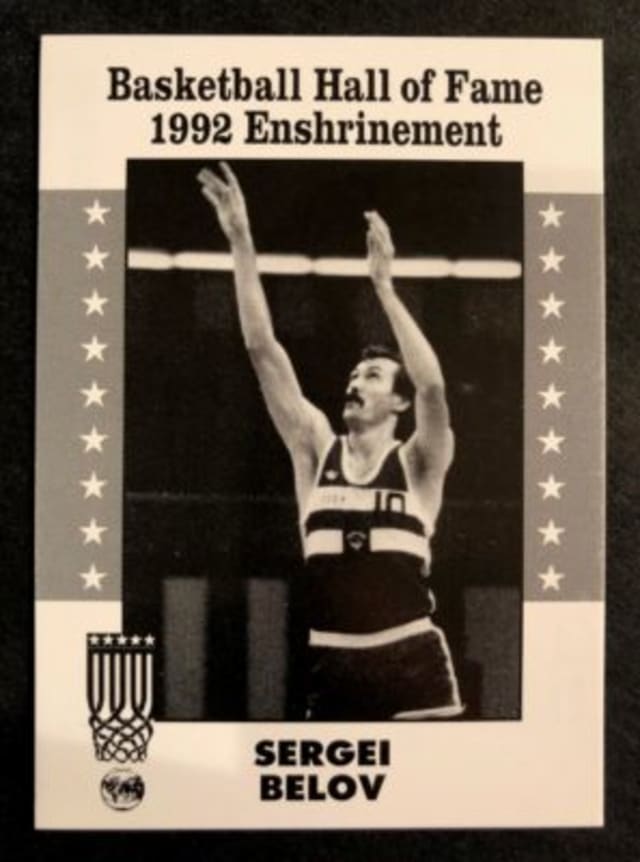
In his autobiography, Upward Movement, Belov recalled his discovery that USA and Boston Celtics great Bill Russell jumped 30 times in a row and touched the rim with both hands as part of his normal training regime.
"I considered myself obligated to repeat this," Belov wrote. "I asked my mother to sew a canvas bag fixed on my shoulders, which I filled with sand, and every day before going to school, I jumped from a low squat with it until I lost consciousness. It was very difficult, but the goal was significant."
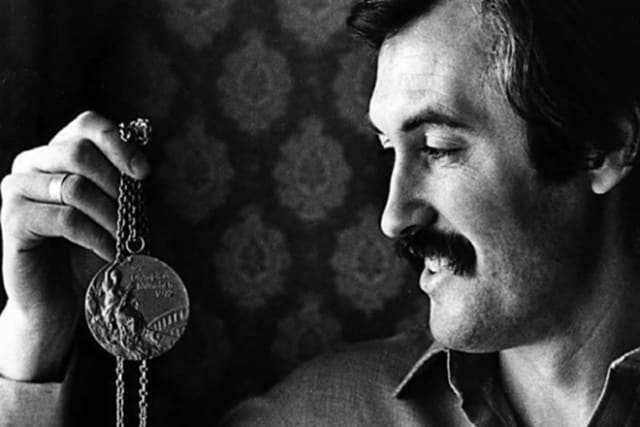 Belov captured numerous medals as a leading player with the Soviet Union national team
Belov captured numerous medals as a leading player with the Soviet Union national team
Belov said that workout strengthened his legs and even helped him play above the rim.
For the Soviet Union, Belov, who was born in 1944, won FIBA Basketball World Cups in 1967 and 1974, FIBA EuroBaskets in 1967, 1969, 1971 and 1979, and also the gold medal at the 1972 Olympics in Munich.
He reached the podium at numerous other events as well.
Belov also achieved greatness as a coach, leading Russia to runners-up finishes at the 1994 and 1998 FIBA Basketball World Cups, Ural Great Perm to back-to-back Russian titles in 2001 and 2002 (the only times CSKA Moscow have not captured the domestic crown), and Russia to a runners-up finish at the World University Games in 2009. At that event in Belgrade, he steered the team to victory over the United States in the Semi-Finals.
Having been a member of the first induction class to the FIBA Hall of Fame in 2007, Belov passed away in 2013. He was 69.
Russians were reminded of Belov's brilliance when the movie Dvizhenie vverkh (It was named Three Seconds in English) was released in 2017. The film looked back at the 1972 Olympic USSR basketball team and particularly the Final, which is among the most famous basketball games of all time.
In that showdown with the United States, Belov was almost unstoppable, pouring in 20 points as the Soviet Union scraped a 51-50 win, thus ending the Americans' run of perfection. The USA had won all previous 63 games they had played in the competition.
Their disappointment at not getting to the top of the podium, because of what transpired at the end, however, led to the American players voting not to accept their silver medals.
Different opinions have been offered as to what happened in that chaotic finish.
While Belov took center stage for most of the contest, USA guard Doug Collins, who went on to become one of Michael Jordan's coaches with the Chicago Bulls, played a starring role at the end for his country. The American team had trailed late in the contest but mounted a furious rally and two Collins free-throws gave them the lead with three seconds left.
He made the first free-throw to tie the contest 49-49 but just as he released his second , the horn sounded. Collins nevertheless drilled the attempt for a one-point USA advantage.
The USSR then inbounded the ball but play was stopped as it reached mid court with a second remaining, with the Soviet coach, Vladimir Kondrashin, shouting that he had requested a timeout. Even William Jones, the first FIBA Secretary General who was at the game, walked onto floor and signaled that three seconds needed to be put on the clock.
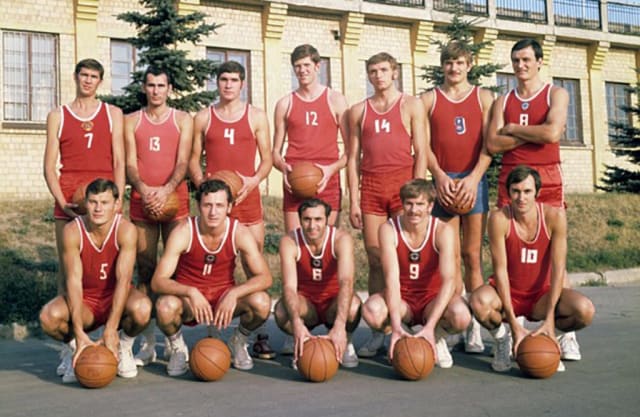 Sergei Belov (No. 10) had 20 points in the 51-50 Gold Medal Game triumph over the USA in 1972
Sergei Belov (No. 10) had 20 points in the 51-50 Gold Medal Game triumph over the USA in 1972
At those Olympics, coaches had devices with buttons to push if they wanted a timeout and the Soviets argued they had wanted one but confusion reigned. The fact that the horn had gone off just as Collins was attempting his second free-throw seemed to indicate they had indeed requested a timeout.
Ultimately, three seconds were put back on the clock and the Soviets again inbounded the ball. It was hurled up the floor for a desperation tap that was off target. The horn sounded, and the Americans celebrated. But their mood quickly changed, as the Soviets received another opportunity when it was determined that the clock had not shown three seconds when the ball was inbounded that second time.
The Soviets then substituted Ivan Edeshko into the game to make the inbounds pass. With three seconds visibly on the clock, the referee handed Edeshko the ball and he threw it up the floor. It was snared by Soviet center Aleksander Belov, who scored the winning points. Aleksander Belov was not related to Sergei Belov.
 The Soviets celebrated after their narrow win over the USA in the Munich Olympic Final
The Soviets celebrated after their narrow win over the USA in the Munich Olympic Final
Sergei Belov wrote in Upward Movement, "When, by all the logic of the game of basketball, we did not have the slightest chance of success - inexplicably, mystically, we won. It was an irrational victory granted to us by God ... for what? Everyone has their own answer to this question."
Belov also remembered being exhausted in that most famous of games and one of his greatest moments.
"I did not run to celebrate with the guys who joined together in a bunch, I simply did not have the strength to do so," he wrote. "I just hugged (Soviet assistant coach Sergei) Bashkin, who came across to me on the court. I remember that his sports jacket was soaking wet, as if he had played."
Even while the Soviet Union celebrated, the USA refused to accept the result. They immediately filed a protest but a five-man jury of appeal voted to award victory to the Soviet Union, which was announced the following day. The USA launched a further appeal to the IOC but it was rejected the following January in 1973.
The contentious ending became the focus of the game in its aftermath, but as time passed, everyone acknowledged that Sergei Belov had put on a master class performance on the biggest stage of the sport.
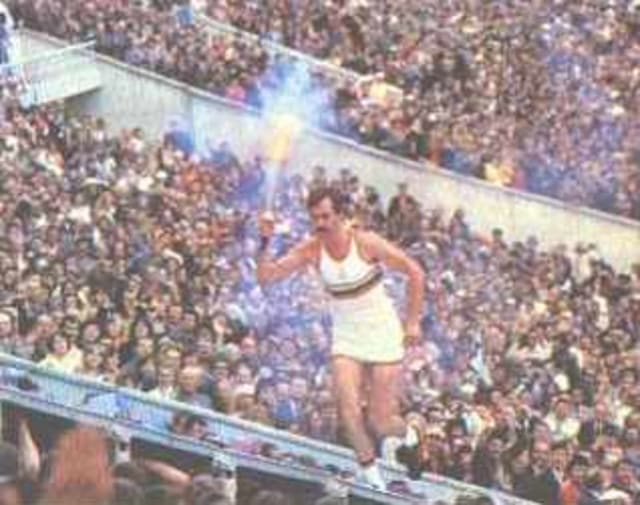 Belov had the tremendous honor of lighting the Olympic flame at the 1980 Moscow Games
Belov had the tremendous honor of lighting the Olympic flame at the 1980 Moscow Games
Many expected the two nations to square off again four years later in the Montreal Olympic Final but Yugoslavia defeated the USSR in their Semi-Final, 79-74, despite Sergei Belov's 16 points and Aleksander Belov's 18.
Without Aleksander Belov, who died tragically of cardiac sarcoma in 1978 at just 26 years of age, the Soviet Union hosted the Moscow Olympics, which the USA boycotted. This was supposed to be another big moment in Sergei Belov's career.
He even had the honor to carry the torch and light the Olympic flame. The problem for the Soviet Union at these Games was that their European nemesis, Yugoslavia, who had also defeated them in the EuroBasket 1975 Final and the EuroBasket 1977 Final, met them in the Quarter-Finals and won, 101-91.
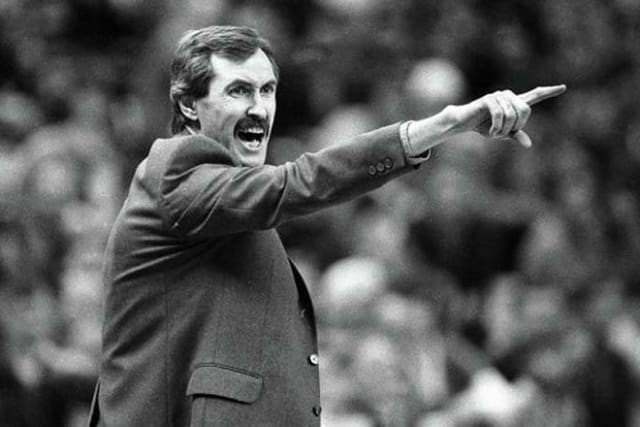 Belov was also a big hit as a coach
Belov was also a big hit as a coach
Belov stopped playing after those Summer Games but went on to use his experience and basketball acumen as a coach.
His name is heard often in Russia, where he is truly revered. He was also the Russian Basketball Federation president from 1993–98 while also coaching the men's team.
The Sergei Belov Trophy is awarded to the winner of the VTB United League and his long-time club as a player, CSKA Moscow, have a bust of Belov on their CSKA Alley of Fame.
FIBA